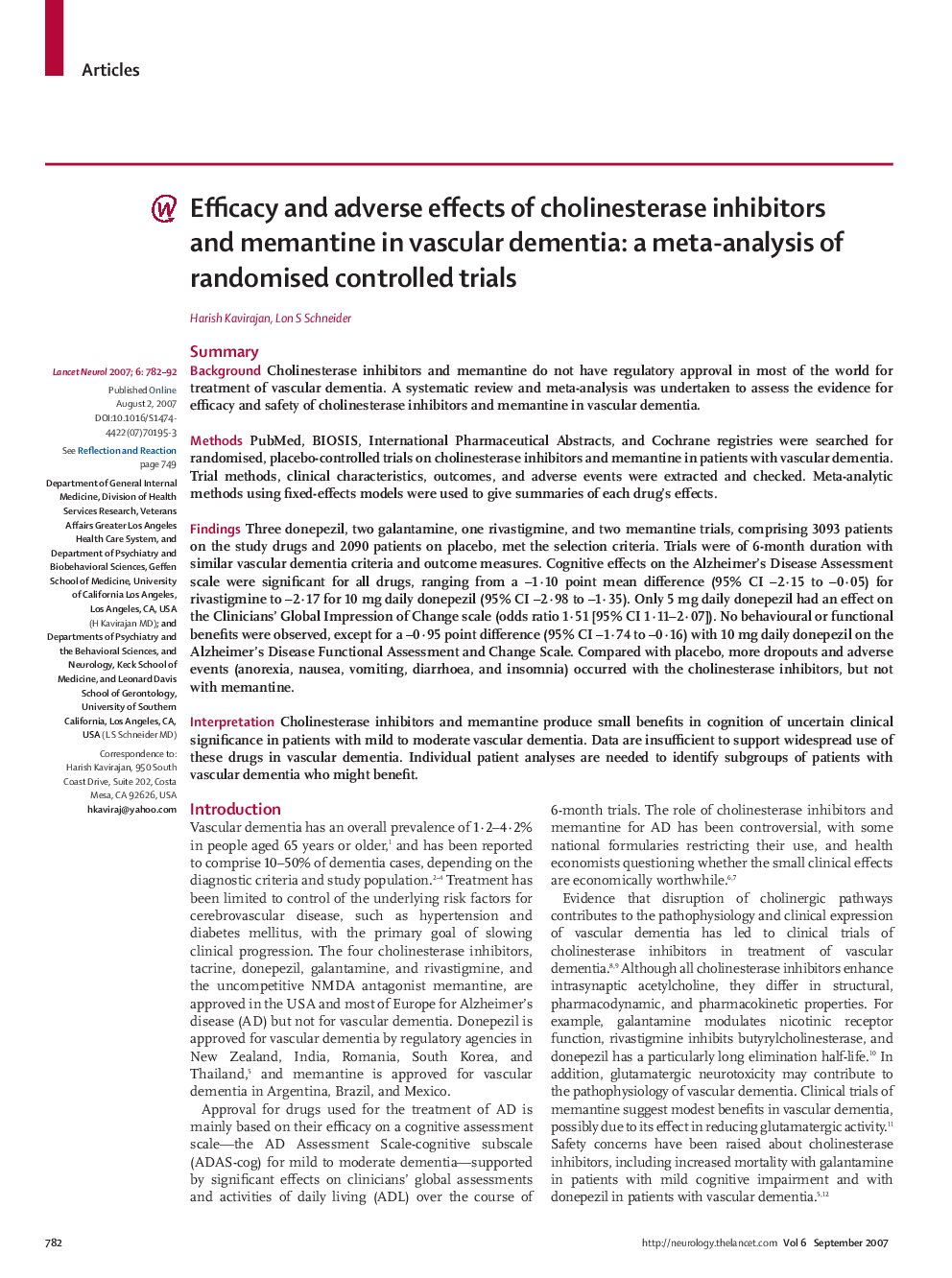| Article ID | Journal | Published Year | Pages | File Type |
|---|---|---|---|---|
| 3067655 | The Lancet Neurology | 2007 | 11 Pages |
SummaryBackgroundCholinesterase inhibitors and memantine do not have regulatory approval in most of the world for treatment of vascular dementia. A systematic review and meta-analysis was undertaken to assess the evidence for efficacy and safety of cholinesterase inhibitors and memantine in vascular dementia.MethodsPubMed, BIOSIS, International Pharmaceutical Abstracts, and Cochrane registries were searched for randomised, placebo-controlled trials on cholinesterase inhibitors and memantine in patients with vascular dementia. Trial methods, clinical characteristics, outcomes, and adverse events were extracted and checked. Meta-analytic methods using fixed-effects models were used to give summaries of each drug's effects.FindingsThree donepezil, two galantamine, one rivastigmine, and two memantine trials, comprising 3093 patients on the study drugs and 2090 patients on placebo, met the selection criteria. Trials were of 6-month duration with similar vascular dementia criteria and outcome measures. Cognitive effects on the Alzheimer's Disease Assessment scale were significant for all drugs, ranging from a −1·10 point mean difference (95% CI −2·15 to −0·05) for rivastigmine to −2·17 for 10 mg daily donepezil (95% CI −2·98 to −1·35). Only 5 mg daily donepezil had an effect on the Clinicians' Global Impression of Change scale (odds ratio 1·51 [95% CI 1·11–2·07]). No behavioural or functional benefits were observed, except for a −0·95 point difference (95% CI −1·74 to −0·16) with 10 mg daily donepezil on the Alzheimer's Disease Functional Assessment and Change Scale. Compared with placebo, more dropouts and adverse events (anorexia, nausea, vomiting, diarrhoea, and insomnia) occurred with the cholinesterase inhibitors, but not with memantine.InterpretationCholinesterase inhibitors and memantine produce small benefits in cognition of uncertain clinical significance in patients with mild to moderate vascular dementia. Data are insufficient to support widespread use of these drugs in vascular dementia. Individual patient analyses are needed to identify subgroups of patients with vascular dementia who might benefit.
